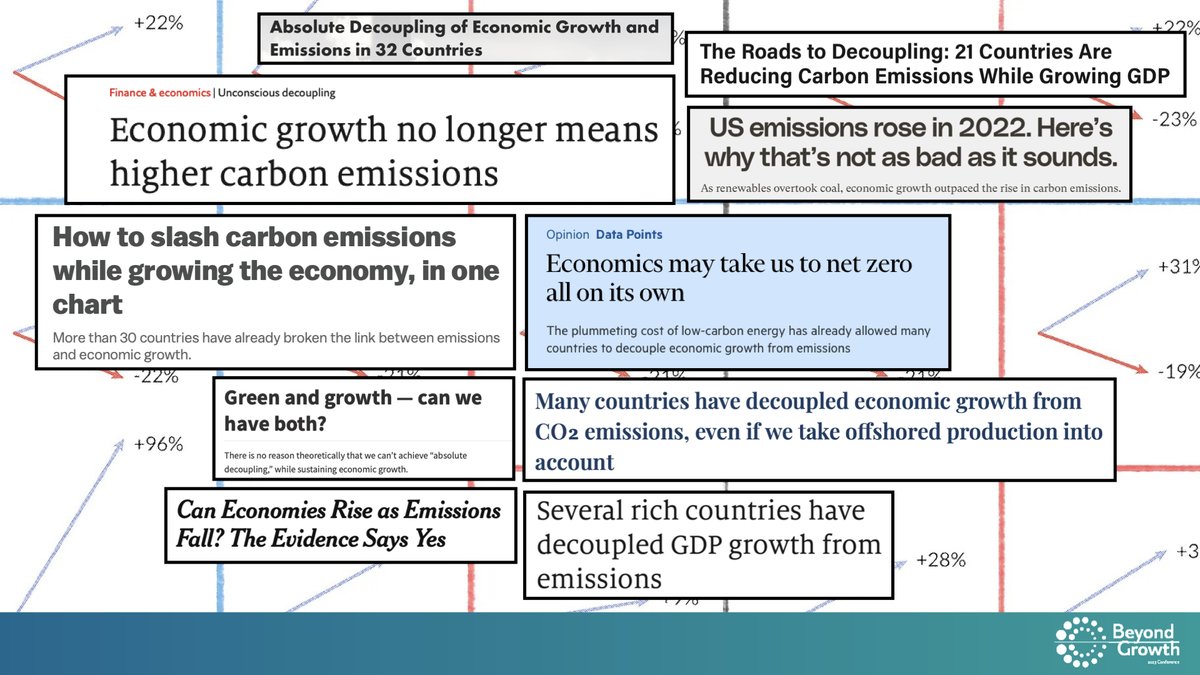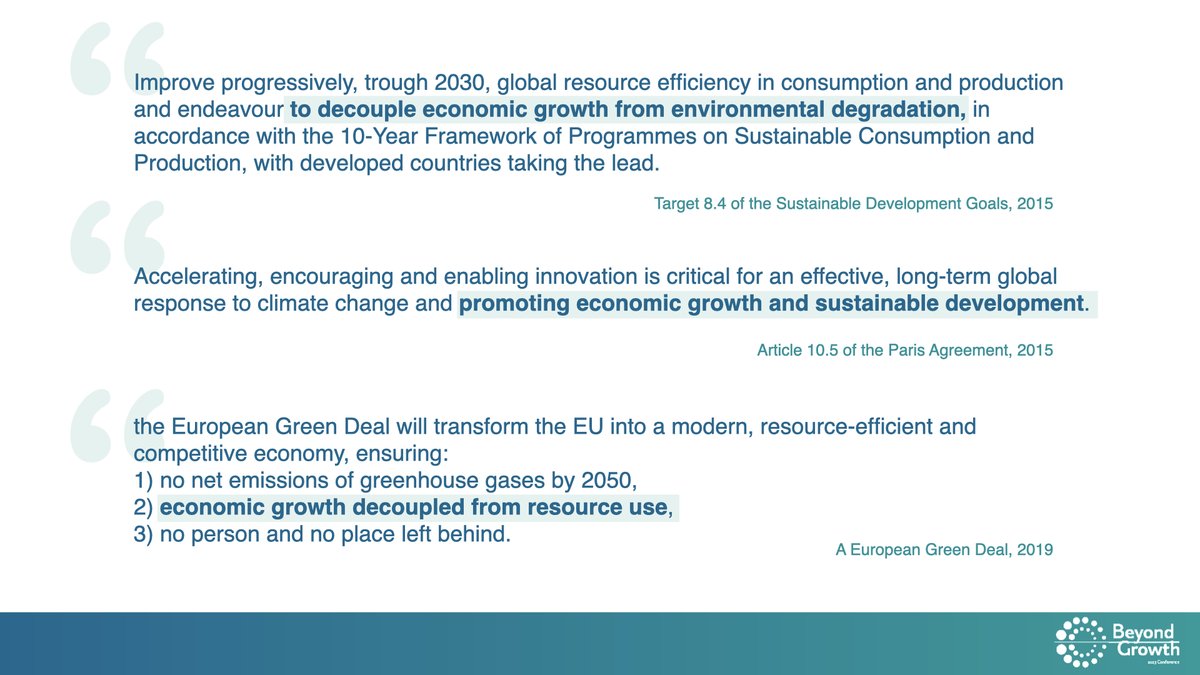An interesting article by @JPTilsted et al. on the "green" growth of Nordic countries (that is actually not as green as you may have heard).
🧵
🧵

The article criticises the concept of "Genuine Green Growth" from @estoknes and @jrockstrom arguing that the growth of Nordic countries is not as genuine and green as it seems. 

In the Stoknes & Rockström paper, the authors show that the emission patterns of Nordic countries sometime meets the green growth requirement of a yearly 5% improvement in carbon productivity (the straight blue line). 

This brings them to conclude that: "Results show that so far, among Nordic countries, Sweden, Finland and Denmark have achieved genuine green growth, while Norway has not."
sciencedirect.com/science/articl…
sciencedirect.com/science/articl…
This result is questioned by @JPTilsted et al. who argue that Stoknes & Rockström make a number of problematic choices concerning what to measure and how to measure it. 

They show that Denmark is actually far from the 5% yearly reduction requirement. "Danish production-based emissions displayed hardly any absolute decoupling (...) with total yearly emissions being mostly constant." 

Similar results for other Nordic countries when measuring their carbon footprints (so including imported emissions). 

They also criticise the 5% yearly reduction requirement from Stoknes & Rockström arguing that it's insufficient. A more ambitious climate target of 1.5°C brings that rate up to between 6% and 14%. 

This changes the results entirely: the Nordic countries are (very) far from having achieved a green growth compatible with the 1.5°C climate threshold. 

Take-home message: be careful how you define "green," because anything can start to look green if you loosen certain assumptions and pick incomplete indicators. 

Link to the paper: sciencedirect.com/science/articl…
Link to a thread from the lead author summarising the results:
END THREAD/
Link to a thread from the lead author summarising the results:
https://twitter.com/JPTilsted/status/1394900889304018946?s=20&t=kdqRPT_RFn8fKoHuSBV3Cw
END THREAD/
• • •
Missing some Tweet in this thread? You can try to
force a refresh

















